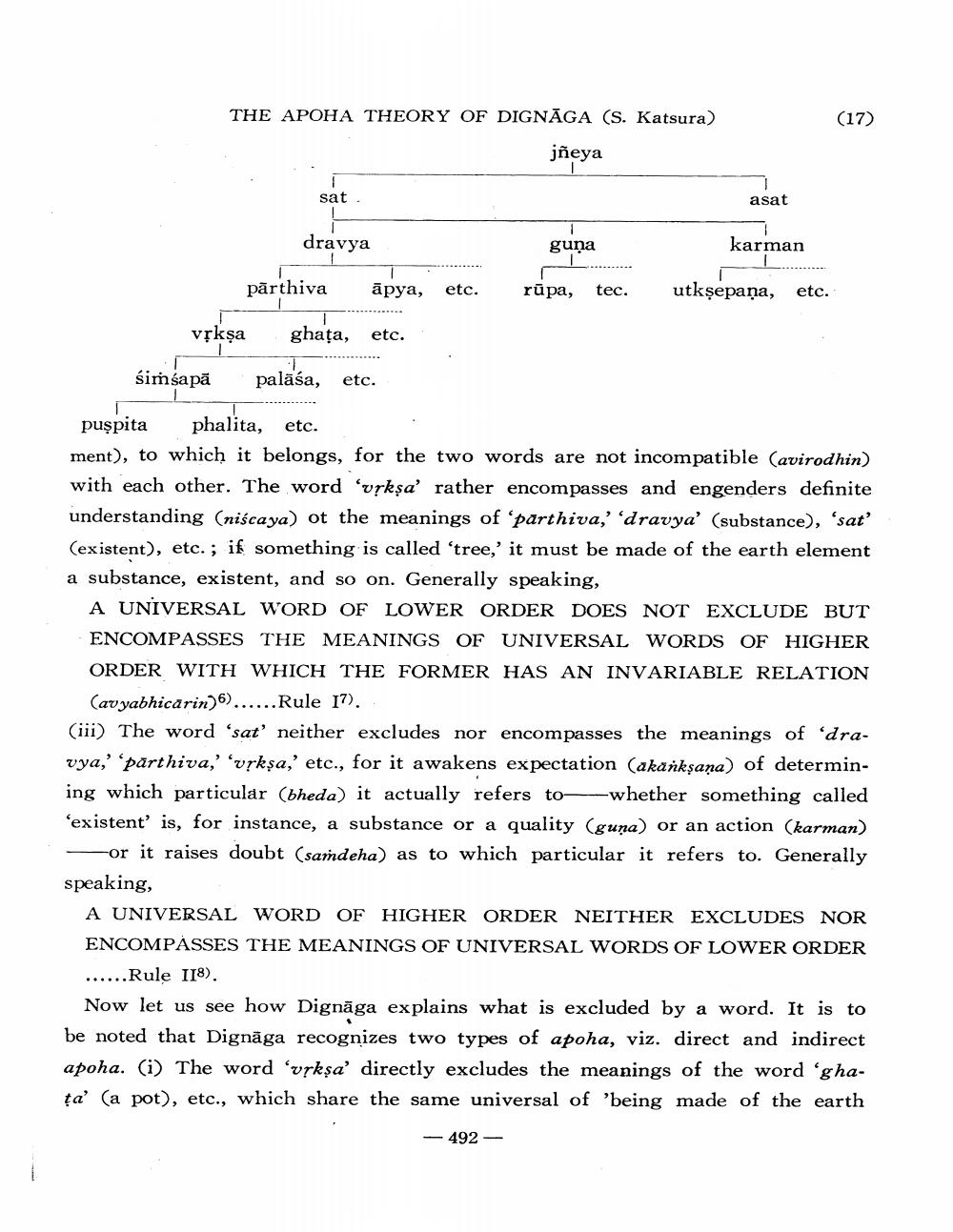Book Title: Apoha Theory Of Dignaga Author(s): Shoryu Katsura Publisher: Shoryu Katsura View full book textPage 2
________________ (17) THE APOHA THEORY OF DIGNĀGA (S. Katsura) jñeya sat asat dravya guņa karman pārthiva āpya, etc. rupa, tec. utkşepaņa, etc. vệkşa ghata, etc. śimšapā palāśa, etc. puşpita phalita, etc. ment), to which it belongs, for the two words are not incompatible (avirodhin) with each other. The word 'vrkşa' rather encompasses and engenders definite understanding (niscaya) ot the meanings of 'parthiva,' 'dravya' (substance), 'sat' (existent), etc.; if something is called 'tree,' it must be made of the earth element a substance, existent, and so on. Generally speaking, A UNIVERSAL WORD OF LOWER ORDER DOES NOT EXCLUDE BUT ENCOMPASSES THE MEANINGS OF UNIVERSAL WORDS OF HIGHER ORDER WITH WHICH THE FORMER HAS AN INVARIABLE RELATION (avyabhicarin)6)......Rule 17). (iii) The word 'sat' neither excludes nor encompasses the meanings of 'dravya,' 'parthiva,' 'výkşa, etc., for it awakens expectation (akankşaņa) of determining which particular (bheda) it actually refers to whether something called 'existent is, for instance, a substance or a quality (guna) or an action (karman) - or it raises doubt (sardeha) as to which particular it refers to. Generally speaking, A UNIVERSAL WORD OF HIGHER ORDER NEITHER EXCLUDES NOR ENCOMPASSES THE MEANINGS OF UNIVERSAL WORDS OF LOWER ORDER ......Rule 118). Now let us see how Dignāga explains what is excluded by a word. It is to be noted that Dignäga recognizes two types of apoha, viz. direct and indirect apoha. (i) The word 'vrkșa' directly excludes the meanings of the word 'ghata' (a pot), etc., which share the same universal of 'being made of the earth - 492 —Page Navigation
1 2 3 4 5
